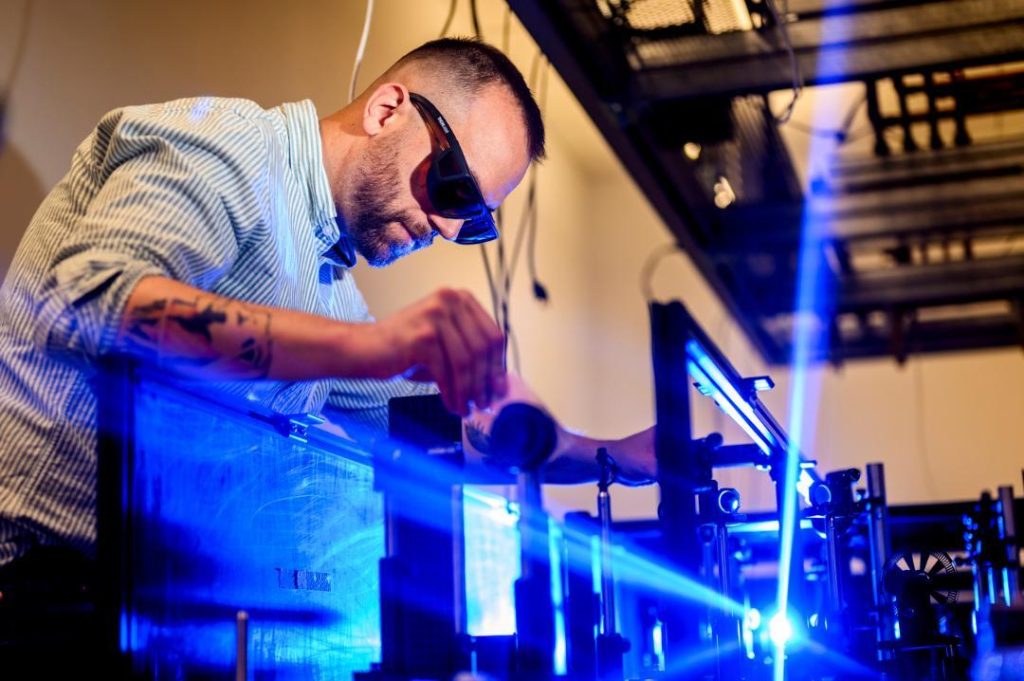
New Quantum Material Technique Could Make Electronics 1,000 Times Faster: Study
The rapid advancement of technology has led to an exponential increase in demand for faster and more efficient electronic devices. From smartphones to computers, the need for speed has driven innovation in the field of electronics. Recently, a team of researchers from Northeastern University has made a groundbreaking discovery that could revolutionize the industry by developing a new technique using quantum materials that could make electronics 1,000 times faster.
The study, led by Dr. Xiao Rui, a professor of physics and chemistry at Northeastern University, has found that a specific quantum material, 1T-TaS₂, can switch between insulating and conducting electricity based on temperature. This phenomenon, known as thermal quenching, allows scientists to control the material’s electrical properties by applying controlled heating and cooling.
Thermal quenching is a rare and unique property found in some quantum materials, which are known for their extraordinary electrical and magnetic properties. These materials have the potential to replace conventional silicon components, which are currently used in most electronic devices.
The researchers used a combination of theoretical calculations and experimental techniques to study the properties of 1T-TaS₂. They found that when the material is heated to a specific temperature, it can transition from an insulating state to a conducting state, allowing it to conduct electricity. This transition is reversible, meaning that the material can be cooled back down to its insulating state.
“This discovery opens up new possibilities for the development of ultra-fast electronics,” said Dr. Rui. “By controlling the temperature of the material, we can switch it between insulating and conducting states, allowing us to create devices that can operate at speeds previously unimaginable.”
The potential applications of this technology are vast and exciting. With the ability to create devices that can operate at speeds 1,000 times faster than current technology, scientists could develop new applications such as:
- High-speed data transmission: Faster data transmission would enable the transfer of large amounts of data quickly and efficiently, revolutionizing the way we communicate and access information.
- Advanced medical devices: Faster electronics would enable the development of more advanced medical devices, such as pacemakers and implantable devices, that could improve patient care and outcomes.
- Energy-efficient devices: By reducing the energy required to operate devices, scientists could develop more energy-efficient electronics that could help reduce our carbon footprint and mitigate climate change.
The researchers are excited about the potential of this discovery and are already working on further developing the technology. “We are eager to explore the potential of this material and its applications,” said Dr. Rui. “We believe that this discovery could have a significant impact on the field of electronics and beyond.”
The study was published in the journal Nature Materials and was supported by the National Science Foundation and the Department of Energy.
Source:
https://news.northeastern.edu/2025/06/27/quantum-electronics-speed-discovery/






